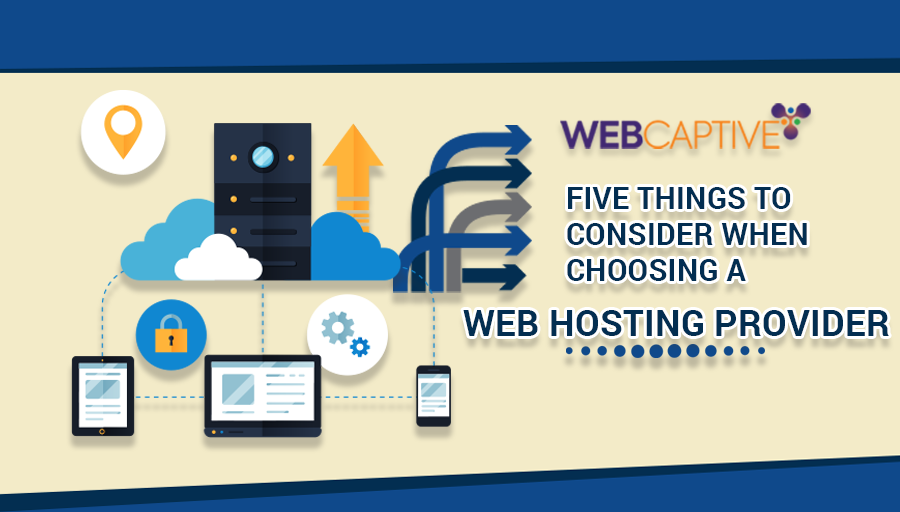Web Hosting Server is the lifeline of every website. It should be up and running 24/7.”
― Dr. Chris Dayagdag
Think about this for a moment. You want an office for a rent, where you can undertake your business-related interactions with your customers or clients. You get a rented space.
You also pay your rent charges with maintenance, to the room provider for using that service. In this office, you would meet a limited number of customers regularly.
Imagine that you got a space as an office, where you could meet millions and billions of people for your business interactions, with considerably lesser effort, and lower cost.
The person who provides and manages this space for your business is called the web hosting provider.
The space you get would apply to your personal use too.
Who is a web hosting provider? What does he do?
Digital Marketing is vital for any business lately and to build your business online it is essential to have and launch a website. But, hosting a website can be a tricky process and that is when web hosting provider comes in to the picture.
Web hosting provider does the job of getting your domain accessible to the World Wide Web. They are a business that allows the organization or an individual to post a website page on the internet.
It provides all the services and technologies required to post and hold your webpage on the internet.
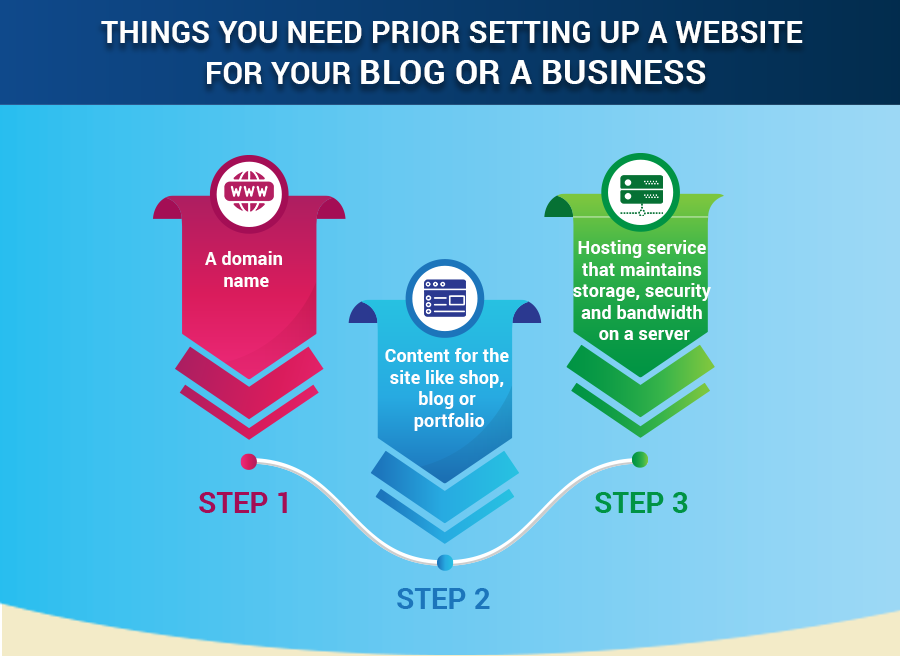
There are currently 966 million websites in the world today. – Internet statistics, 2016
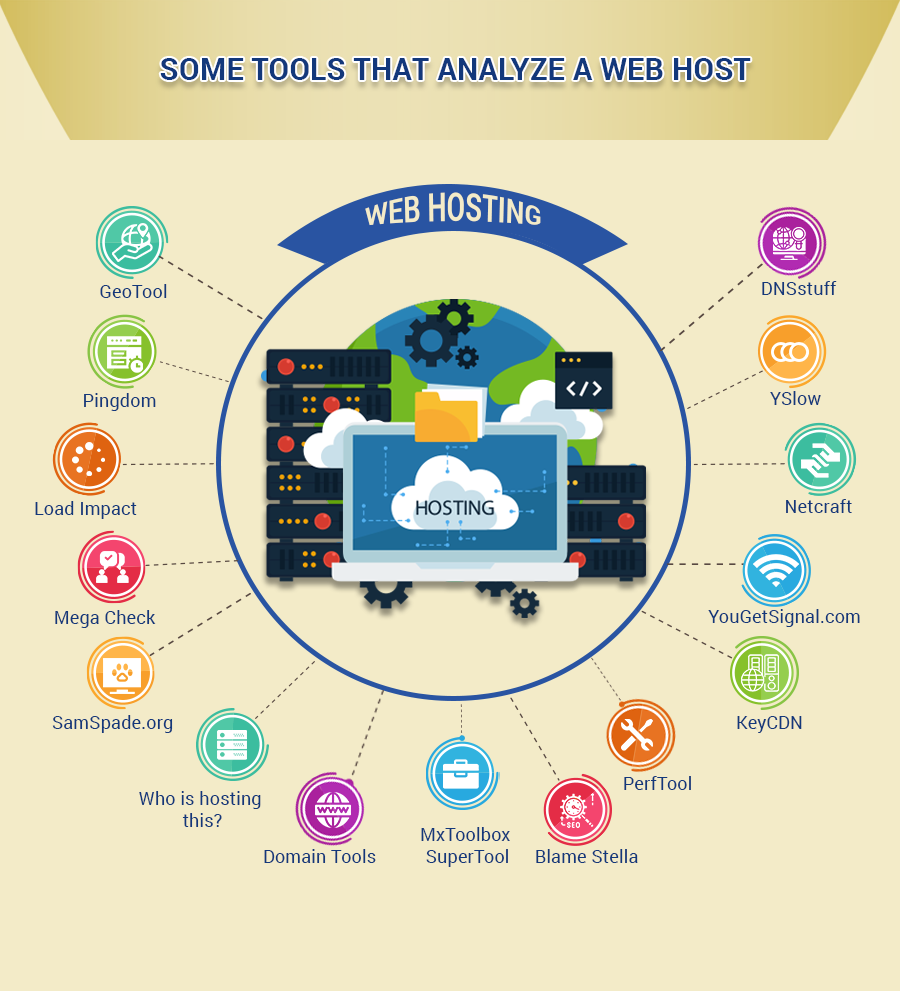
Features of a great web hosting:
Ok, I know what you are thinking. What are the essential characteristics that make up a successful web hosting? Let’s answer this:
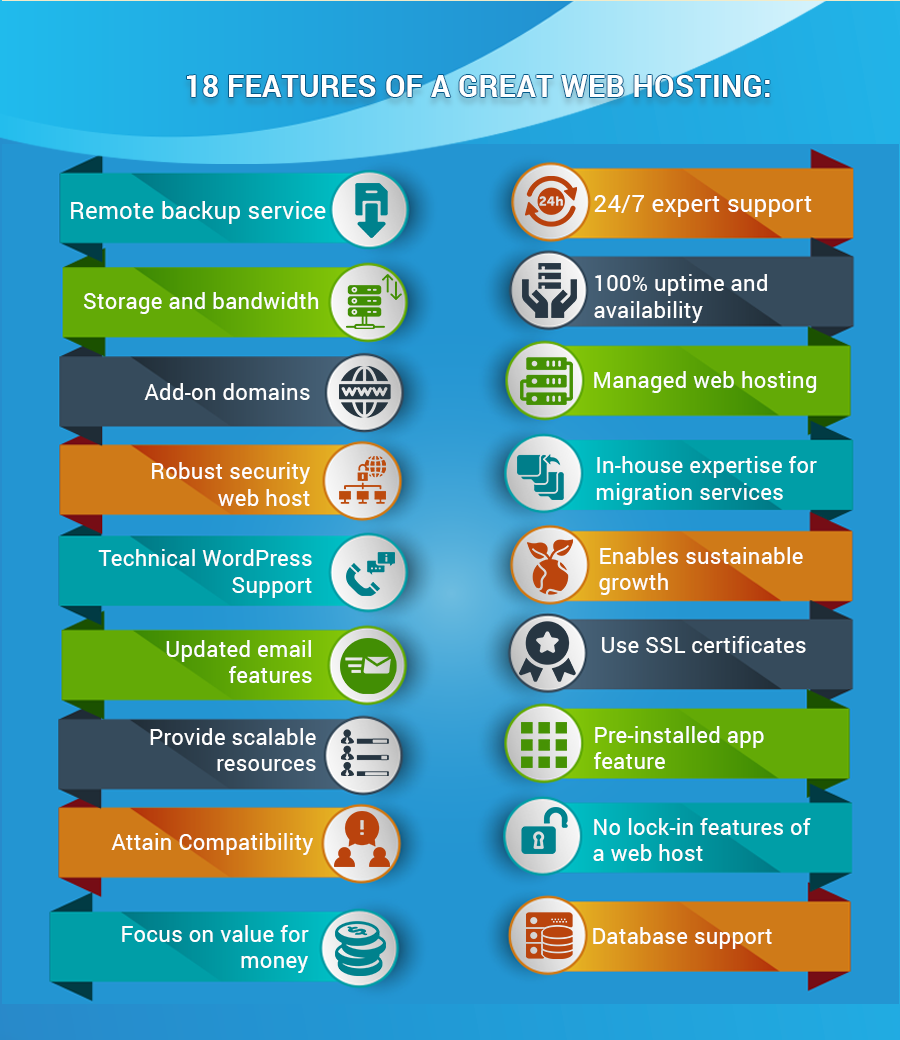
18 Features of a great web hosting:
i. 24/7 expert support:
A great web hosting provider has to provide a 24/7 support to their customers. They need to have a 24/7 expert assistance to solve customer queries.
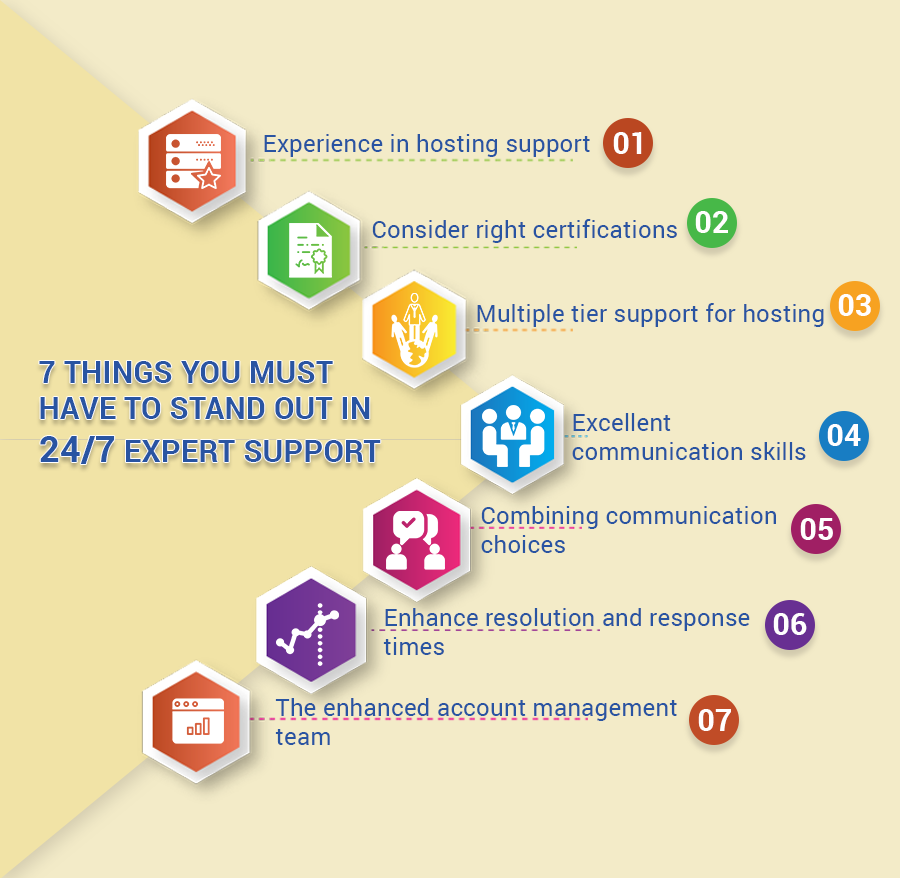
ii. Remote backup service:
Backup is the process of copying the virtual file, physical file or databases to the secondary location for preservation if there is catastrophe or destruction of the data.
Excellent back up service is essential to provide a reliable web hosting, and users expect their data or content to be backed up by it.
An efficient backup service must have two critical aspects. They are:
- Stored in more than one location
- Created on a regular basis
iii. 100% uptime and availability:
Uptime is an uninterrupted time a web hosting system experiences. You can use different online tools to check the uptime of the web hosting providers.
Some of the Digital and online tools to check the web hosting uptime:
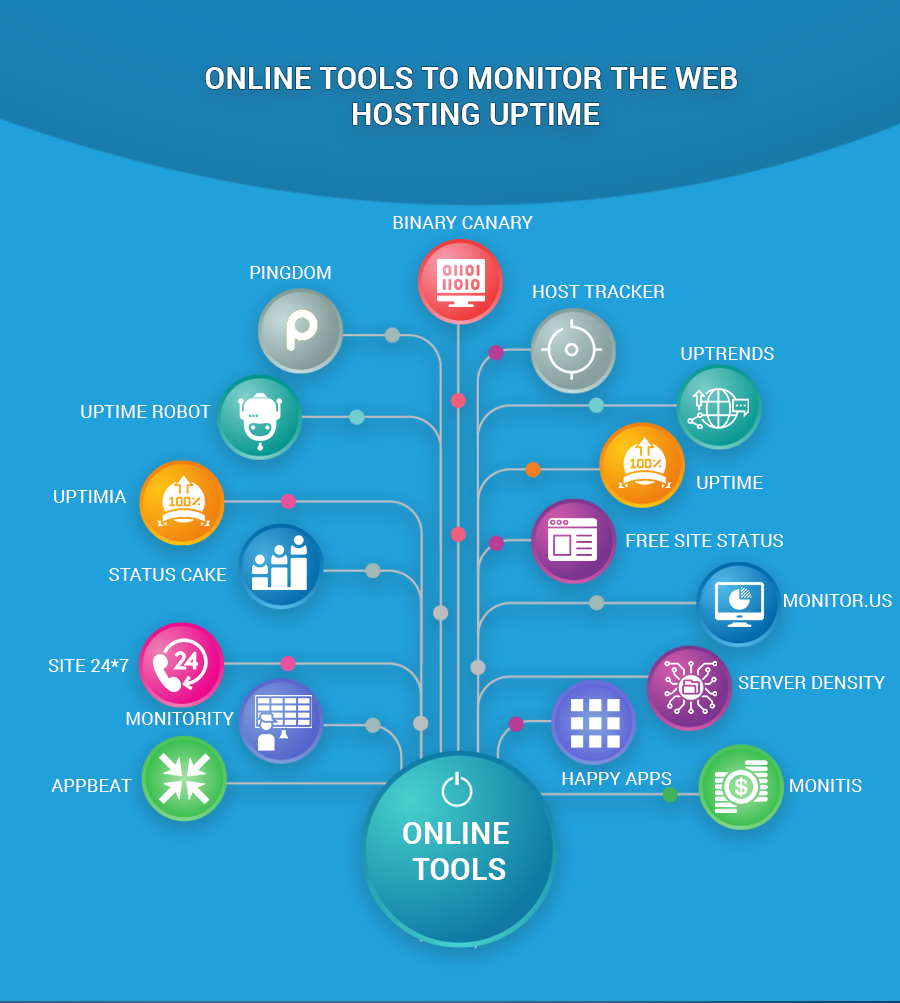
Half a billion dollars are spent on slow websites. Slow sites with a single second delay cost 500 million dollars each year, reducing conversion rates by 7%.
iv. Storage and bandwidth:
Storage space is the measure of total area required for storing your entire website files.
You need to make sure that you have more disk/storage space than the website requires when you choose a web host.
Bandwidth is the amount of data a web host provider offers to upload or download a file.
You must pay close attention to your bandwidth limit that your web hosting provider offers. It affects the performance of the website and traffic speed.
v. Add-on domains:
You also need to check out, if the web hosting provider offers some domains for a single account. The domains include .com, .net, .biz, .info, .eu, .de, .org and so on.
Some new domains are .club, .stream, .top, .xyz, .cheap, .recipes and so on. They have larger potential in the future.
vi. Managed web hosting:
If you are burdened with more business tasks, then you can opt for a managed web hosting services. You can also customize the managed web hosting for specific needs.
Select a managed web hosting service that can keep your files updated every time.
vii. Robust security web host:
Never allow the hackers to take advantage of your weakness. If you wish to keep your website running for a long time, then it’s necessary that you keep your website secure and robust.
What are the common hosting security features?
- Firewalls
- DDoS Protection
- Virus Protection
- Security Protection
- Spam Filter
- SSL Security Certificate
- Domain Name Privacy
Viii. In-house expertise for migration services:
Migration service means moving your database and website content from one web hosting service to another.
Check for the web hosting providers, if they possess the in-house expertise to perform a free migration service conveniently.
ix. Technical WordPress Support:
Check if your web hosting provider offers the dedicated WordPress hosting services and technical support.
x. Enables sustainable growth:
You must check if your web hosting provider can offer you various web hosting services as you grow in your business.
xi. Provide scalable resources:
As you keep running your business, you need to ensure that your website keeps growing as your visitors keep increasing. All you need to see is, whether-
- Your server resources match the pace of website growth
- A reduction in downtime
xii. Pre-installed app feature:
The control panel is the tool that helps to manage all aspects of the hosting service.
Things to keep in mind to select Control panel for a web hosting;
- The simplicity of the user interface
- Use Plesk for platform independence
- Active forums for free panels
- Compatibility of the features and software support
- Use control panels with good tech support
- Choose a control panel with updated stability and security features
xiii. Updated email features:
Make sure that your web hosting provider gives complete integration with a highly updated Email application like Outlook.
xiv. Use SSL certificates:
Check if the web hosting provider has an SSL certificate.
SSL (Standard Socket Layer) is the technology behind the encrypted connection between the web server and web browser. Millions of customers use this to protect their websites.
xv. Attain Compatibility:
Ensure that the software you are using is compatible with the hardware and operating system offered by the web hosting provider.
xvi. No lock-in features of web host:
Make sure that the web hosting provider doesn’t lock you when you are willing to migrate to another similar provider.
xvii. Focus on value for money:
Always check for the reliability, security, and supportiveness of your hosting service, then you check the price.
xviii. Database support:
Check for the database support that your web hosting providers offer. Mostly all DBMS (Database Management System) for web hosting runs with MySQL. There are other DBMS like Oracle, PostgreSQL, SQL Server and others.
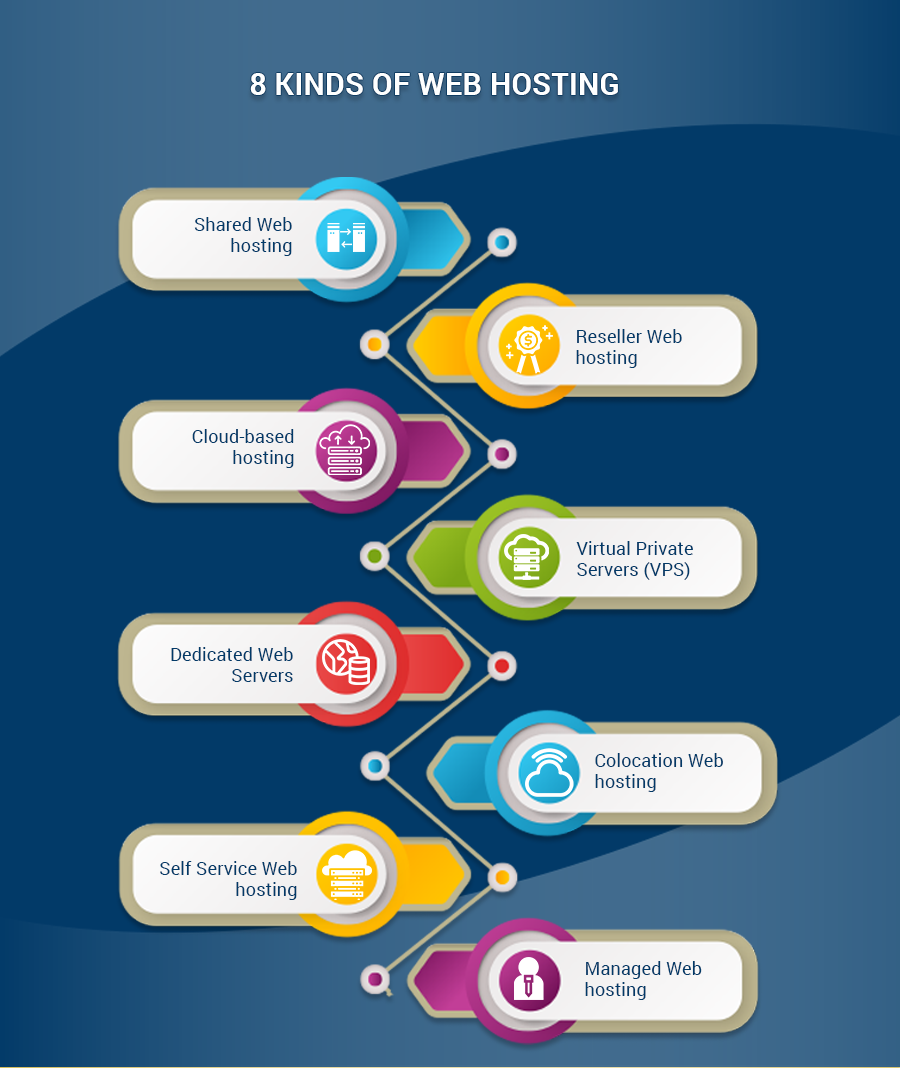
8 Types of Web hosting:
i. Shared Web hosting:
Shared hosting means that your web hosting provider host your website on a server that other sites are sharing.
The global shared hosting market will reach $18.7 billion in 2018. – Internet statistics 2018.
ii. Reseller Web hosting:
Reseller web hosting is a shared hosting account where the extra tools can help you resell the hosting space.
iii. Cloud-based hosting:
Under Cloud-based web hosting, hundreds of individual servers collaborate and work together that becomes a giant server. You can use this when the traffic is increasing to your website. They add commodity hardware to add a larger grid or cloud.
iv: Virtual Private Servers (VPS):
Virtual Private Server (VPS) shares one server, but acts like multiple separate servers. They are an intermediary stage between shared hosting and dedicated machine.
v. Dedicated Web servers:
Dedicated web servers are the highest level of servers, where you would gain more website traffic. Here, you may rent a physical server from a hosting company. You can also have complete control of it.
vi. Colocation Web hosting:
Under Colocation Web hosting, you bring in physical security, power, cooling, and internet uplink. When hardware fails, you will be responsible for replacing your hardware and software servers and making them run.
vii. Self Service Web hosting:
As a digital marketer or an online business owner, you can use self-service web hosting. In this web hosting, you are entirely responsible for all the functions of the server. They are:
- data center space
- cooling
- power (with backup)
- bandwidth
- server hardware
- systems administrator
- Data integrity and backup, and so on.
viii. Managed Web hosting:
In Managed Web hosting, the web hosting provider keeps your WordPress installation up-to-date and secure.
What happens if you select the wrong web hosting provider?
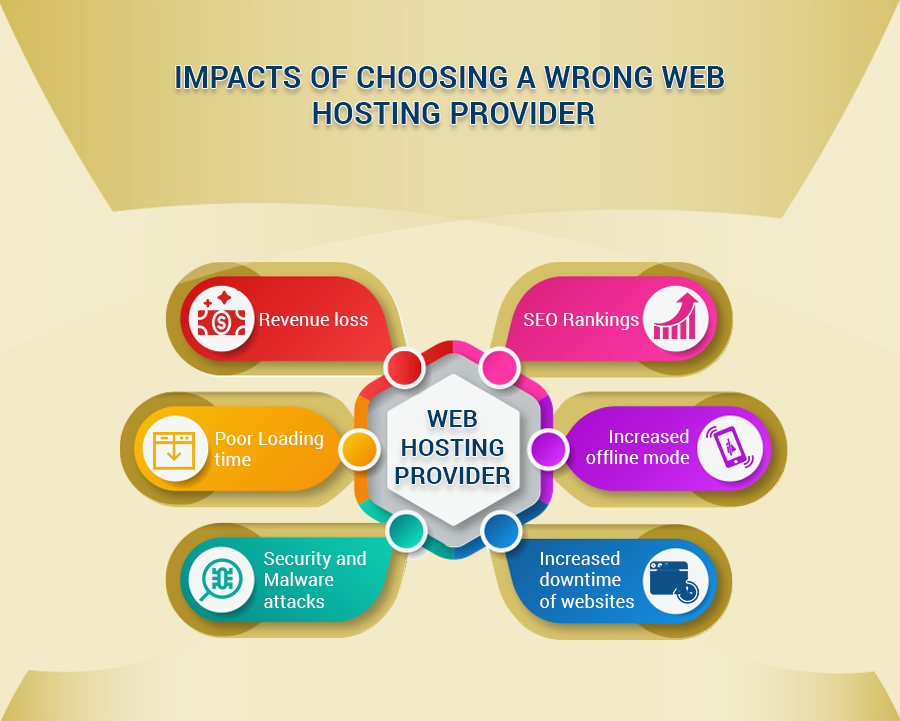
i. Revenue loss:
Choosing a wrong website would lead you to a massive loss of revenue. Not only you lose the potential customers, but you also end up losing a considerable revenue.
ii. SEO Rankings:
Your main motive is to rank well in the search pages effectively. If there is a poor web hosting, then your rankings get affected heavily. SEO experts tell that a poor performing website can hurt your rankings immensely.
iii. Security and Malware attacks:
It is challenging to eliminate the security and malware attacks on computers. You can easily counter them.
You must see to if the web hosting provider can backup your data to the remote server. They can restore the backed-up data when someone hacks your site.
iv. Poor Landing time:
As people are forced to wait in one site, they would surely quit. It would bring a significant loss to the business trust you have built among your customers.
v. Increased offline mode:
An expanded offline mode would make it tough for your customers to reach your website.
vi. Increased downtime of websites:
It is crucial to keep up your uptime on your website. If not, your business would face a massive loss of revenue and customers.
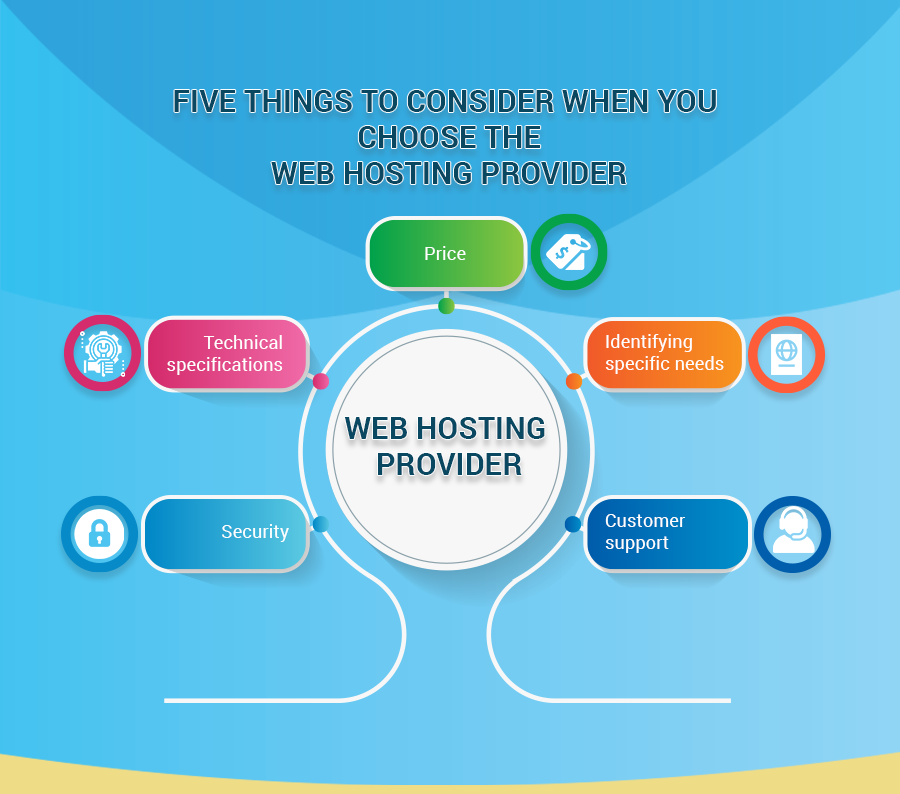
5 Things to consider when you choose the web hosting provider:
i. Identifying specific needs:
It is highly essential that you sort out your particular needs relating to your web hosting requirements.
The specific needs are-
- Kind of website
- Common layout feature
- Operating system
- The script for the website
- Software to run the site
- Amount of visitors
Mobile internet users count for almost 52% of the internet users. – (Web hosting industry statistics, 2017)
ii. Technical specifications:
Technical specifications do matter a lot for those who want a quality web hosting provider.
The technical specifications include:
- Scalability
- Control panel
- User-friendliness
- Upgrade potential
- Speed and security
- Infrastructure strength
- Add on domain services
- Use of eco-friendly energy
- Web host uptime and downtime
- Support resources and bandwidth
- Hardware and operating system support
A percentage of 56% of all that traffic is fake and is generated from automated bots. – (Web hosting industry statistics, 2017)
iii. Price:
You can opt for a month-to-month plan and then think of upgrading the services. It would increase your chances of operating freely in choosing the web hosting provider. You must be aware of the refund policy during the trial period, free trial options, renewal terms, and so on.
iv. Security:
As a user of web hosting, you need to see whether the web hosting provider, offers the backup if data is lost or hacked. It comes at a premium rate. It is worth having this security feature at even a premium cost.
84% of online shoppers would abandon a purchase if data were sent over an insecure connection. – [GlobalSign]
v. Customer Support:
Many web hosting companies are moving towards free and premium live chat support for the customers. You must ensure that the company has an active community site like support forums, YouTube channels, and FAQ’s and so on.
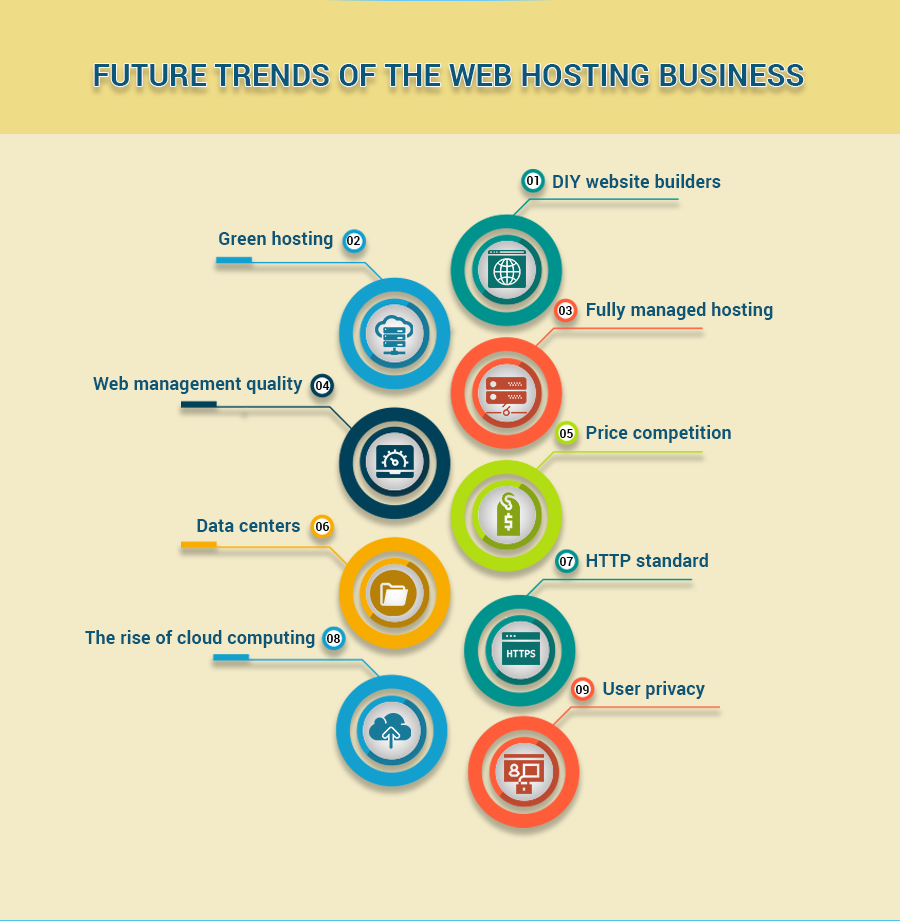
FUTURE TRENDS OF THE WEB HOSTING BUSINESS
i. DIY Website builders:
In the future, apart from offering Do It Yourself (DIY) website builders, companies must provide additional resources to deal with it.
ii. Fully managed hosting:
For a fully-managed hosting, you would require CDN (Content Delivery Network). You must also possess value-in-house capabilities with the help of third parties to make fully-managed hosting successful.
iii. Price competition:
Web hosting companies follow a cell-phone company approach, where they offer discounts for a short-term in return for a two or three-year contract.
iv. HTTP standard:
More than half the companies are using HTTP standard for their websites. It would be best if you gave up a free HTTP offering. In that place, you would have a chance to charge for other security services.
v. User privacy:
With the new GDPR policies, companies have additional responsibility to protect the privacy of customer data. They must inform the company directly before data-related transactions. To solve this problem, you have two approaches. They are;
- Using a program to track and report data breaches
- Provide values on privacy to the web host customers using webinars, newsletters, and additional services
vi. Green hosting:
Web hosts actively carry out eco-friendly initiatives to mitigate the impact on the environment. It is incentivizing those who use maximum renewable and clean energy to do their web hosting.
vii. Web Management quality:
You must consistently maintain web management quality in two ways. They are-
- Self-Educating yourself constantly on the business systems
- Invest in various web management tools
viii. Data Centers:
Apart from the unusually demanding customers like banks and government, there is no necessity to own data centers for the web hosting companies. It increases their costs manifold.
ix. The rise of Cloud computing:
Cloud computing breaks the limitations of shared hosting and expenses of the dedicated server hosting. The need for a larger space would be solved.
What Cloud hosting does?
Web hosting providers put data resources and files of the clients on the same server. It offers flexibility and on-demand services for individual clients, where providers can scale-up or scale-down services easily.
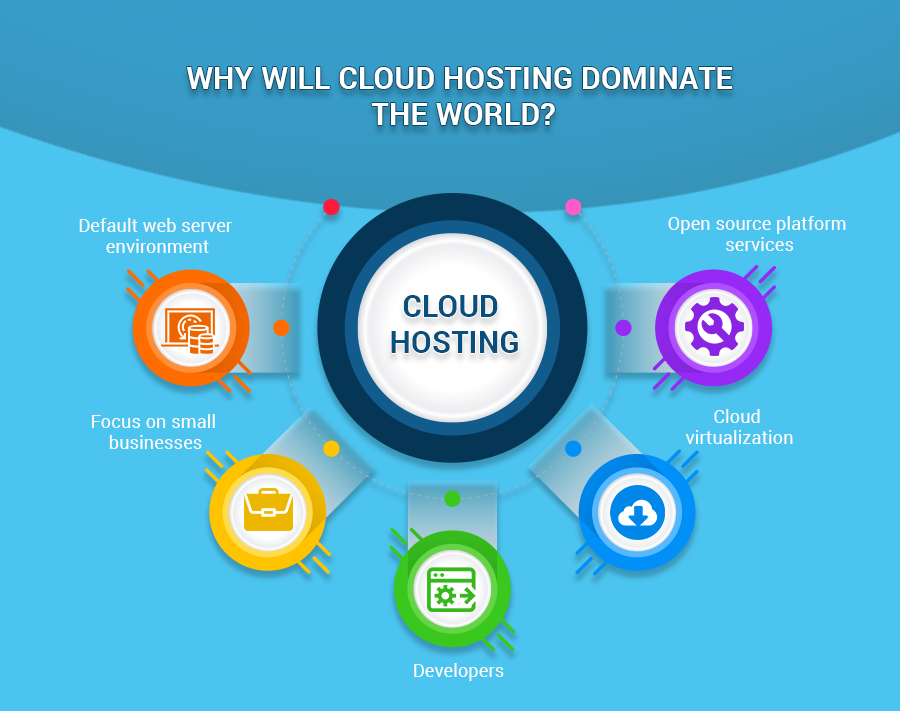
Why will Cloud hosting dominate the world?
i. Default Web server environment:
Each customer would get his/her virtual server. There won’t be any competition, as they would already feel the usage of virtual server convenient like a dedicated
ii. Open source platform services:
Open source developers are attempting, evolving and collaborating in running platforms on the cloud. It would increase cloud revenues.
iii. Focus on small business and developers:
With open source technologies, the role of operators and developers would determine technological transitions.
iv. Cloud virtualization:
Cloud virtualization is increasing rapidly in emerging economies. Now the readily available public clouds are built on top of the cloud platforms
v. Developers:
Developers would control the infrastructure for the integration of software development and information technology
Conclusion:
So! We conclude. Your web hosting decisions have a significant impact on your business (b2b or b2c). Make the right decision and break your limits in your business.
The primary watchword of website hosting is that;
“We don’t just sell websites; we create websites that SELL.”
― Dr. Christopher Dayagdag
For more web hosting services, contact us on www.webcaptive.com

